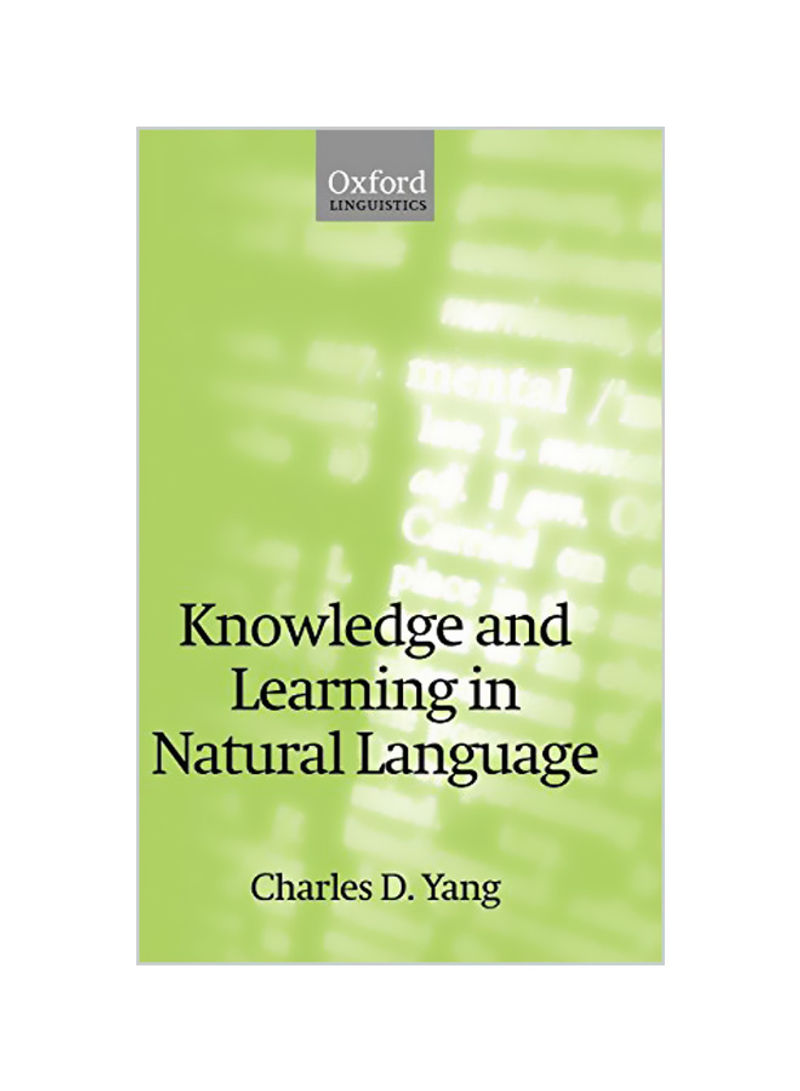Knowledge And Learning In Natural Language Hardcover
Recommend
Sort by
Rating
Date
Specifications
Author 1
Charles D. Yang
Book Description
This work presents a new theory of how children acquire language and discusses its implications for a wide range of topics. It explores the roles of innateness and experience in language acquisition, provides further evidence for the theory of Universal Grammar, and shows how linguistic development in children is a driving force behind language shifts and changes Charles Yang surveys a wide range of errors in children's language and identifies overlooked patterns. He combines these with work in biological evolution in order to develop a model of language acquisition by which to understand the interaction between children's internal linguistic knowledge and their external linguistic experience. He then presents evidence from his own and others' research in the acquisition of syntax and morphology and data from historical language change to test its validity The model is makes quantitative and cross-linguistic predictions about child language. It may also be deployed as a predictive model of language change which, when the evidence is available, could explain why grammars change in a particular direction at a particular time.
ISBN-13
9780199254149
Language
English
Publisher
Oxford University Press, USA
Publication Date
27-03-2003
Number of Pages
188
About the Author
Charles Yang has been teaching computational linguistics and language acquisition at Yale since receiving his Ph.D. in computer science at MIT.
Editorial Review
Yang's carefully crafted and impressively argued study is a significant contribution to the exciting field of language acquisition, and cognitive growth more generally. He has shown how conceptions of 'universal grammar' can be integrated with precise ideas about learning/growth mechanisms within a variational model of language acquisition that yields sharp and well-confirmed predictions over quite an interesting range, with implications for language change as well. It is a substantial achievement, sure to become the basis for much fruitful inquiry and research. Noam Chomsky According to Yang, many of today's irregular verbs are historical survivors of what were once systematic rules ... By neglecting this historical evidence Pinker mistakenly supposes that the irregular cases have to be memorized on a case-by-case basis, whereas according to Yang what has to be memorized is which rule applies. Yang strengthens his argument by bringing in evidence from other languages. Yang argues that these irregular patterns are rule-based and that the child's task is not to memorize plurals on a word-by-word basis, but to figure out which rule applies, to which set the noun belongs. If Yang is right, and I think he is, then Pinker's irregulars are not illustrations of the words-and-rules thesis, but the less-general-rules-and-more-general-rules thesis. The New York Review of Books, John R Searle Who would have thought that there could be a synthesis of mathematical learning theory, natural selection and Universal Grammar that is both readable and convincing? Charles Yang has succeeded, and in the process illuminates many phenomena in child language that are perplexing under alternative accounts. Jill de Villiers, Sophia and Austin Smith Professor of Psychology and Philosophy, Smith College



